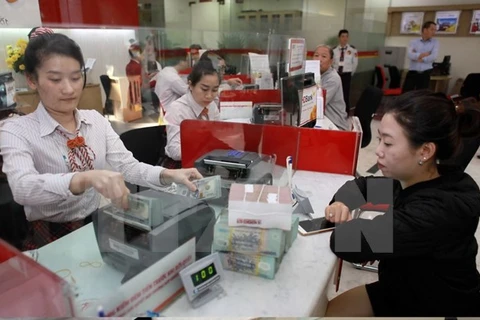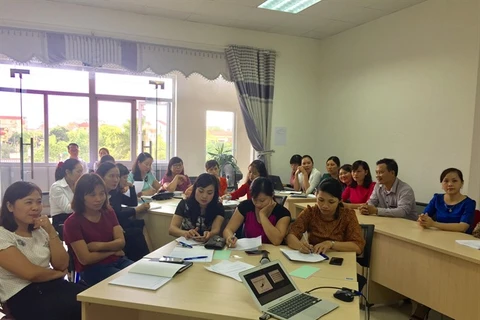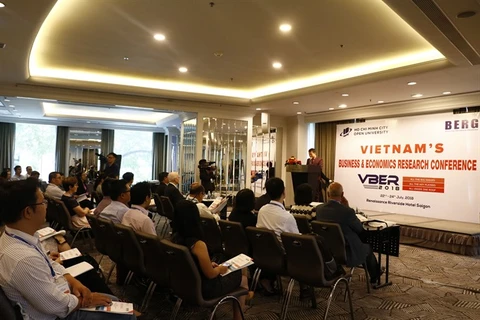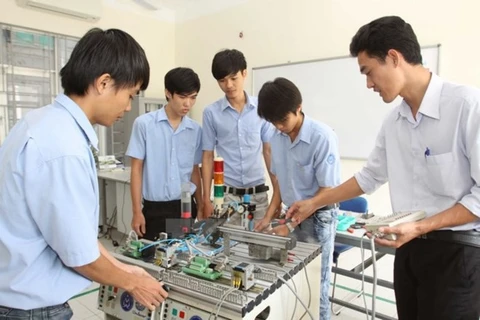Hanoi (VNA) – Microfinance, with easy access to capital, is an effective measure to strengthen the confidence of women and encourage their engagement in production activities, thus improving incomes and reducing poverty, stated Deputy Governor of the State Bank of Vietnam Nguyen Kim Anh.
Addressing a conference in Hanoi on September 25, Anh said that microfinance in Vietnam has long been one of the key components of the financial system and an efficient tool for poverty reduction.
The majority of the policy beneficiaries are low-income, disadvantaged, and vulnerable groups in society, and women in particular, she said.
Statistics have shown that in recent years, the ratio of poor households based on the new poverty standards has reduced from 9.88 percent in 2015 to 6.7 percent in 2017, along with a strong rise in average household incomes.
However, she also pointed to a number of shortcomings in Vietnamese microfinance, such as small-scale and limited range of products and services, along with an incomplete and incoherent legal framework.
Moreover, financial management consultation, support, and education activities for customers of microfinance have been inefficient, which will pose negative impacts on the long-term economic development of business households, including women, Anh added.
Addressing the event, Tran Thanh Long, Director of the Phu Yen branch of the Banking Academy, said that financial, social, and human resources are the three major demands of low-income customers. He stressed the need for financial education to promote the quality of human resources.
Long held that private finance education helps enhance the efficiency of capital use, ensuring the safety of loans and preventing violations from intermediary organisations.
The current financial education programmes have yet to meet the demands of customers, he said, stressing that vulnerable groups must be trained in microfinance before receiving loans in order to optimise the use of borrowed capital. At the same time, it is necessary to train lecturers and build suitable courses on specific subjects for loan borrowers. –VNA
VNA
























